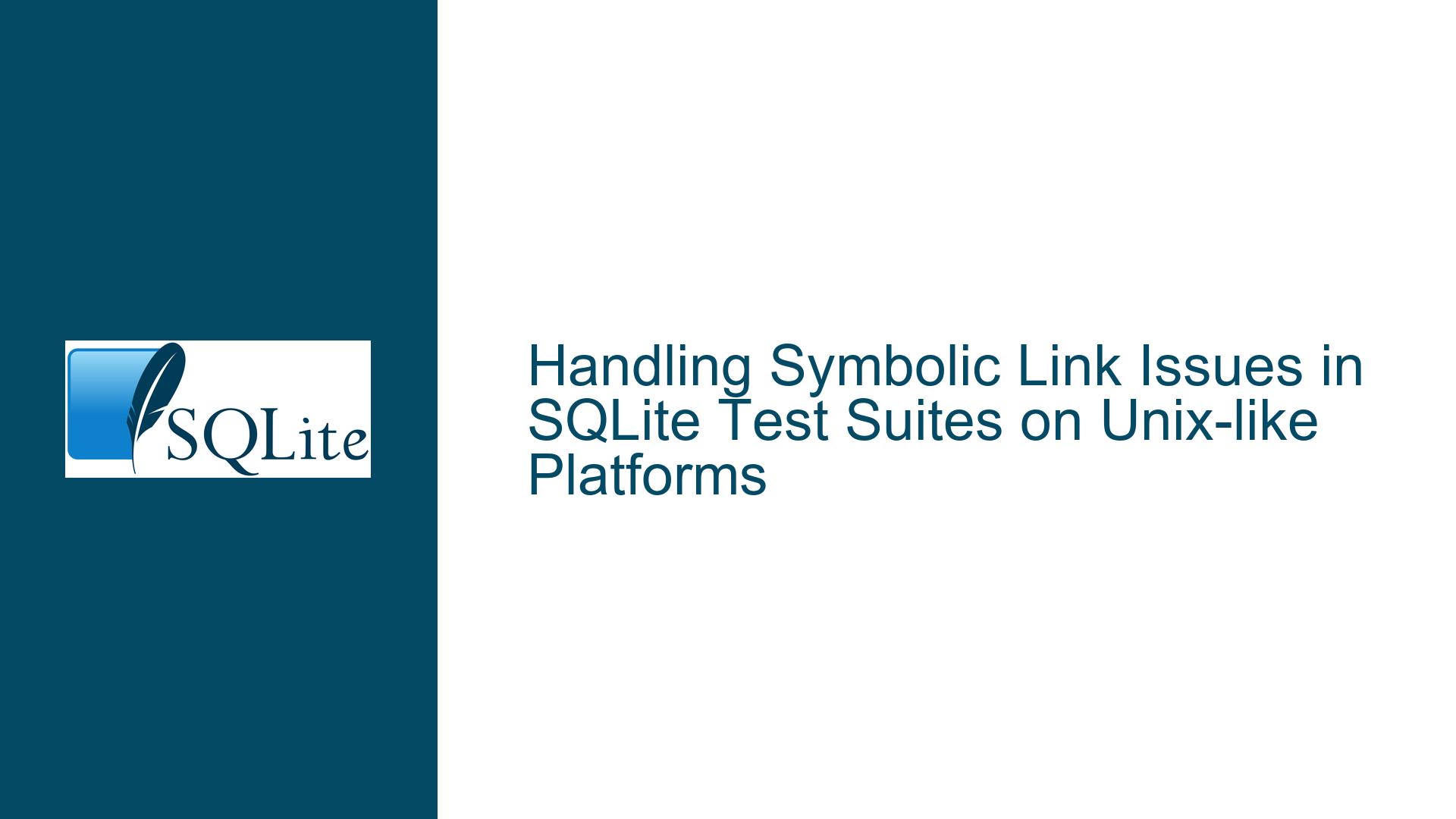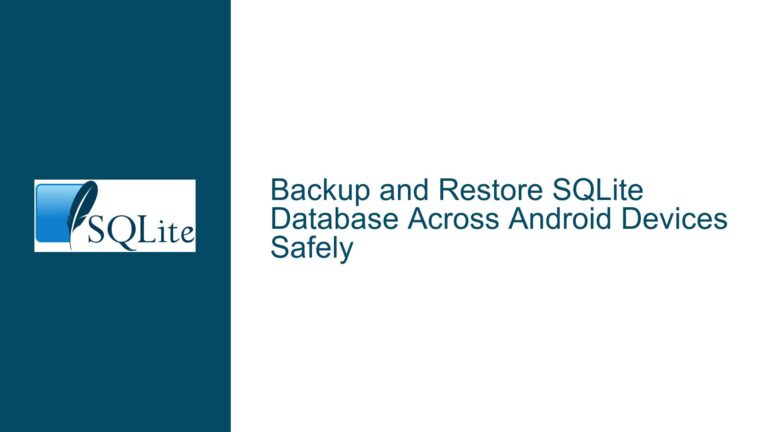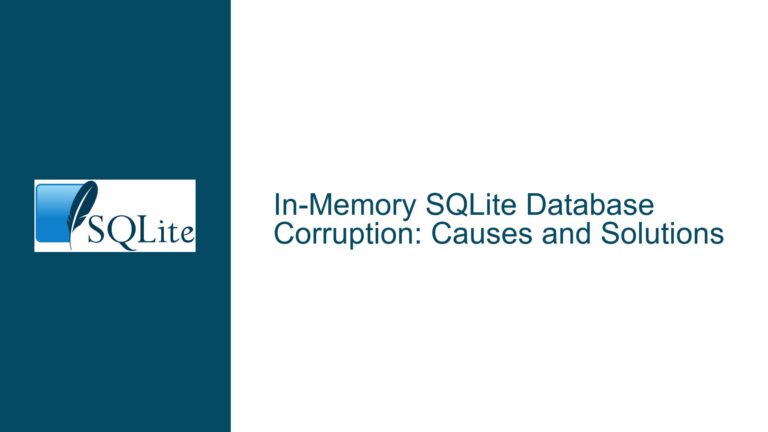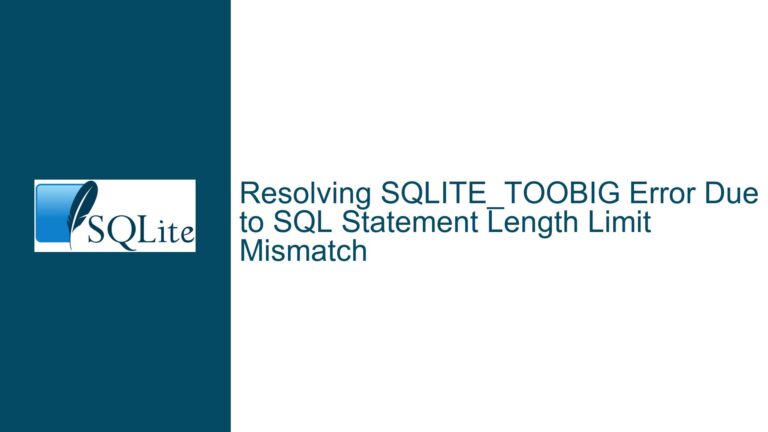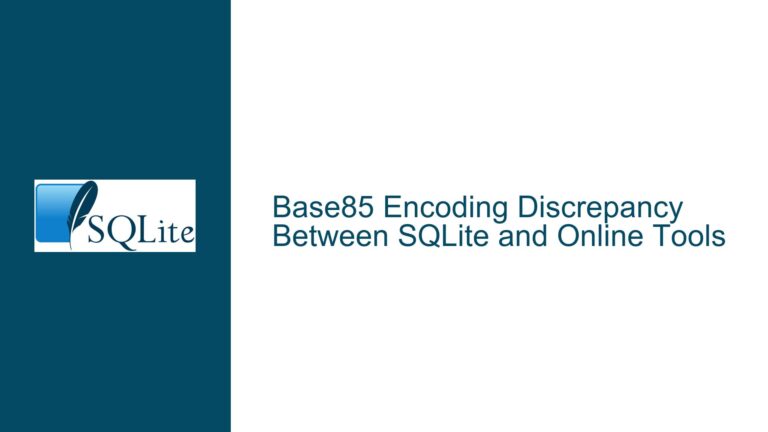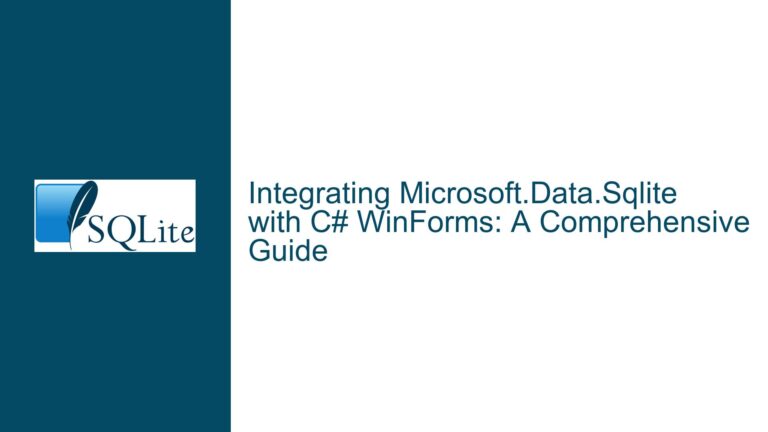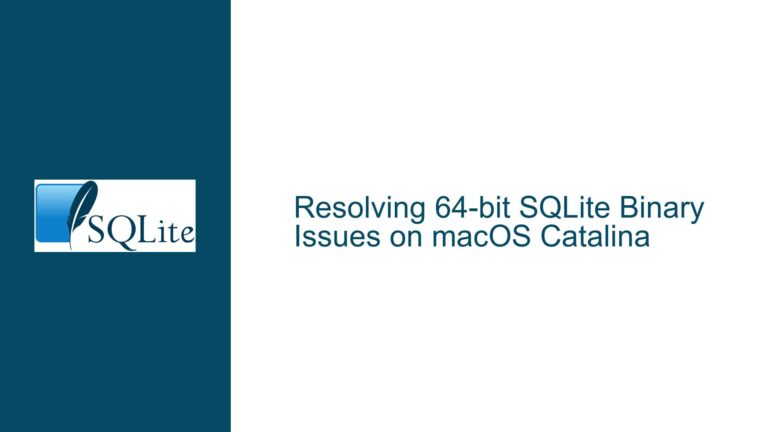Handling Symbolic Link Issues in SQLite Test Suites on Unix-like Platforms
Symbolic Link Functionality Discrepancies in Unix-like Environments
Symbolic links, or symlinks, are a fundamental feature in Unix-like operating systems, allowing files to reference other files or directories. However, the behavior of symlinks can vary significantly across different Unix-like platforms, particularly in environments like MSYS2 and Cygwin. These discrepancies can lead to unexpected behavior in SQLite test suites, where tests often assume that symlinks will function consistently across all platforms. This assumption can cause tests to fail or produce misleading results, especially when the underlying system does not support symlinks as expected.
The core issue arises when SQLite test suites attempt to use symlinks without first verifying that the platform supports them correctly. For instance, on MSYS2, symlinks may not behave as they do on a standard Linux system. This can lead to situations where tests that rely on symlinks either fail or are incorrectly skipped, leading to gaps in test coverage or false positives. The problem is exacerbated when the test suite does not explicitly check for symlink functionality but instead relies on platform-specific assumptions.
To address this, a more robust approach is needed to verify symlink functionality before running tests that depend on them. This involves implementing a mechanism to check whether symlinks are supported and behave as expected on the current platform. By doing so, the test suite can adapt its behavior based on the actual capabilities of the system, rather than making assumptions based on the platform name or other indirect indicators.
Interrupted Symlink Operations Due to Platform-Specific Constraints
The primary cause of symlink-related issues in SQLite test suites is the variability in how different Unix-like platforms handle symlinks. On standard Linux systems, symlinks typically work as expected, allowing files to reference other files or directories seamlessly. However, on platforms like MSYS2 and Cygwin, symlinks may not function in the same way due to differences in the underlying file system or system configuration.
One specific issue is that on some platforms, creating a symlink may result in a file copy instead of a symbolic link. This behavior can be particularly problematic for SQLite test suites, as tests that rely on symlinks may inadvertently operate on copies of files rather than the original files. This can lead to incorrect test results, as the behavior of the test may differ depending on whether a symlink or a copy is used.
Another issue is that the Tcl library, which is often used in SQLite test suites, may not be fully compatible with all Unix-like platforms. For example, on Cygwin, the Tcl library may require extensive patching to work correctly, and even then, it may not fully support symlinks. This can lead to situations where the test suite is unable to create or use symlinks, even if the underlying platform supports them.
Additionally, the test suite may not always correctly detect whether symlinks are supported. For example, the initial approach of checking file sizes to determine whether a symlink has been created may not work as intended, as the file size check may not correctly handle symlinks. This can lead to situations where the test suite incorrectly assumes that symlinks are not supported, even when they are.
Implementing Platform-Agnostic Symlink Checks and Test Adaptations
To address the issues related to symlink functionality in SQLite test suites, a more robust and platform-agnostic approach is needed. This involves implementing explicit checks for symlink support and adapting the test suite based on the results of these checks. The following steps outline a potential solution:
Implement a Symlink Check Function: The first step is to create a function that explicitly checks whether symlinks are supported on the current platform. This function should attempt to create a symlink and then verify that the symlink behaves as expected. For example, the function could create a symlink to a test file and then check whether accessing the symlink correctly accesses the original file. This check should be performed at the start of the test suite, and the results should be stored for use by individual tests.
Adapt Tests Based on Symlink Support: Once the symlink check function has been implemented, individual tests that rely on symlinks should be adapted to check the results of the symlink support check. If symlinks are not supported, the test should either be skipped or adapted to use an alternative approach that does not rely on symlinks. This ensures that the test suite can still provide meaningful results even on platforms where symlinks are not fully supported.
Remove Reliance on File Size Checks: The initial approach of using file size checks to determine whether a symlink has been created should be removed, as this approach may not work correctly on all platforms. Instead, the symlink check function should use more reliable methods to verify symlink functionality, such as checking the contents of the linked file or using platform-specific APIs to query the symlink.
Update Tcl Library Compatibility: If the Tcl library is being used in the test suite, it may be necessary to update or patch the library to ensure compatibility with all target platforms. This may involve applying patches to the Tcl source code or using a different version of the library that is known to work correctly on the target platform. Additionally, the test suite should be updated to handle any platform-specific quirks in the Tcl library, such as differences in how symlinks are handled.
Document Platform-Specific Behavior: Finally, the test suite should include documentation that outlines the expected behavior of symlinks on each supported platform. This documentation should be used to guide the development of platform-specific adaptations and to ensure that the test suite behaves consistently across all platforms. Additionally, the documentation should include instructions for running the test suite on platforms where symlinks may not be fully supported, such as MSYS2 and Cygwin.
By implementing these steps, the SQLite test suite can be made more robust and platform-agnostic, ensuring that it provides accurate and reliable results across all supported platforms. This approach not only addresses the immediate issues related to symlink functionality but also provides a framework for handling other platform-specific quirks that may arise in the future.
Conclusion
Symbolic link functionality is a critical aspect of many SQLite test suites, but it can be a source of significant issues when running tests on Unix-like platforms with varying levels of symlink support. By implementing explicit checks for symlink support and adapting the test suite based on the results of these checks, it is possible to create a more robust and platform-agnostic test suite that provides accurate and reliable results across all supported platforms. Additionally, by updating the Tcl library and documenting platform-specific behavior, the test suite can be further improved to handle the unique challenges posed by platforms like MSYS2 and Cygwin. With these changes, the SQLite test suite can continue to serve as a valuable tool for ensuring the quality and reliability of SQLite across a wide range of environments.
